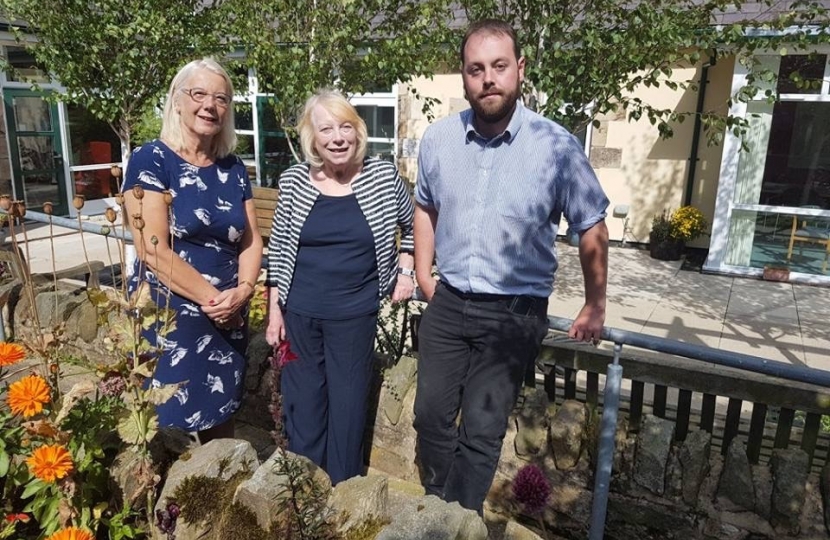
Wellness is a top priority of this council-not just curing illness. Too often healthcare policy is geared solely towards making people better when they fall ill, almost ignoring the many benefits that can come from improving wellbeing and positive lifestyles. We’re about to bring 5 new people on board to make sure that in Northumberland, we are paying more attention than ever before to improving wellbeing, particularly among older people.
The Council’s Ageing Well programme seeks to keep older people active, connected and well by using what is usually known as an ‘asset based’ approach. This involves the use of knowledge, skills and the resources that are already in place to connect people to their communities improving their own social capital and have a positive impact on their health. The long-term impact is ultimately to reduce inequalities in the health of older people and in turn the need for health and social care.
When I was asked to join Peter Jackson’s cabinet with responsibility for adult health and wellbeing I pledged to try and extend this principle to the wider population. The Ageing Well programme has shown us that many of the things that can improve wellbeing to residents are available but only accessed by people already in need of additional healthcare. The Ageing Well network now links together approximately 100 organisations that support older people in some way, sharing their knowledge of what is available. This includes organisations like Bell View, a Northumberland-based charity which supports elderly residents (pictured).
Since 2013 money for public health has been given to local authorities such as Northumberland County Council for initiatives which will improve health outcomes. Using this money we are going to recruit five coordinators who will be able to use local knowledge for setting the priorities in their area. The coordinators will be assigned to areas based on the Local Area Councils set up in 2017 to give local communities more say on the priorities for their area. They will map the assets which are currently available with a view to looking and identify the priorities for communities so wellbeing and health can be improved in that local area. Local coordinators will also work closely with Voluntary Community Services (not for profit organisations) to make sure organisations can reach the maximum number of people in their area.
In the first six months, the coordinators main role will be to build links with communities and develop an understanding of what support is available to put together a countywide directory of organisations, groups and services for each local area and, if needed, setting up a network similar to the Ageing Well network. Using the information collected, grants will be made available to voluntary organisations to develop a range of initiatives supporting community development and the overall themes of connecting communities. The coordinators will also work closely with health care support planners to promote social prescribing and prevent isolation.
I am hopeful that together we can take the Ageing Well programme forward for the benefit of all residents. This will enable communities to get behind the programme by building strong local networks. That way we can ensure that healthcare policy in Northumberland promotes wellness amongst residents, not just waiting until there’s a problem before we take action.
